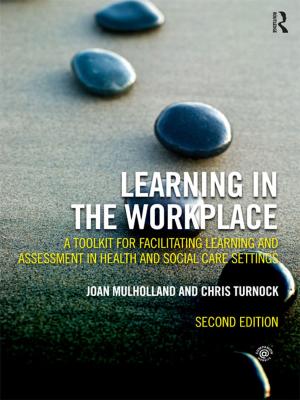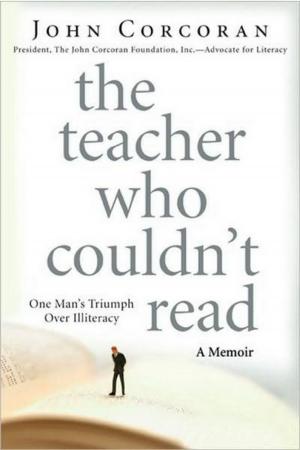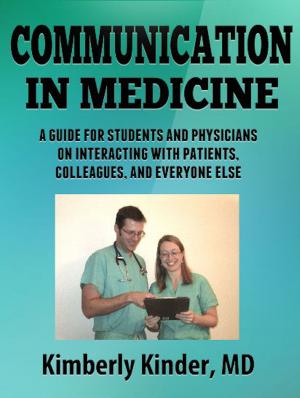Sibling Caregivers: How to Have a Life, Be Encouraged and Live Stress Free
Nonfiction, Health & Well Being, Medical, Patient Care, Caregiving, Specialties, Critical Care, Reference, Education & Training| Author: | OB Nwaogbe | ISBN: | 9781386507277 |
| Publisher: | Oby Nwaogbe | Publication: | May 23, 2018 |
| Imprint: | Language: | English |
| Author: | OB Nwaogbe |
| ISBN: | 9781386507277 |
| Publisher: | Oby Nwaogbe |
| Publication: | May 23, 2018 |
| Imprint: | |
| Language: | English |
We hear about parents taking care of their child with a disability, but not much attention is paid to siblings who have the full time job of being a caregiver. Never fully prepared for a tremendous amount of responsibility, some siblings find themselves playing the role of caregiver sometimes starting at a very young age. The story about my brother and I will encourage other sibling caregivers, and bring the much needed awareness to the tremendous task sibling caregivers take on. This is a part memoir and tips on being a sibling caregiver
Additonally, the goal of this book is to draw attention to the magnitude of family caregivers in the U.S., which is about 65.7 million of U.S. adults who provide care to someone who is ill, disabled or aged (The National Alliance for Caregiving and AARP, 2009). Research also shows that the barriers family caregivers face in accessing ready information or a lack thereof leads to stress, anxiety, psychological problems, physical and mental breakdown. Affording family caregivers and people with disabilities services and resources to have a quality life is one factor, which makes a developed nation stand out from the rest. Unfortunately, state and local agencies in the U.S., and most countries around the world fall short in reaching this goal. During my research, I discovered that cultural differences played a role in why family caregivers of different groups, such as African American, Asian, Hispanic American and European Americans, accessed resources late in their caregiving experience or not at all. Given the findings of this issue, it is important for caregivers to be fully informed about what resources are out there, and it is imperative for state and local caregiver agencies to come up with better communication strategies to better disseminate information to its target audience.
BY READING THIS BOOK, You will discover:
- How to live your life stress free.
- How to accomplish your personal goals.
- How to find resources available to assist you financially, mentally and physically.
- How to better help your sibling or loved one get through and deal with his/her disability.
- How to accept that this is one of the reasons you are here; YOUR PURPOSE.
We hear about parents taking care of their child with a disability, but not much attention is paid to siblings who have the full time job of being a caregiver. Never fully prepared for a tremendous amount of responsibility, some siblings find themselves playing the role of caregiver sometimes starting at a very young age. The story about my brother and I will encourage other sibling caregivers, and bring the much needed awareness to the tremendous task sibling caregivers take on. This is a part memoir and tips on being a sibling caregiver
Additonally, the goal of this book is to draw attention to the magnitude of family caregivers in the U.S., which is about 65.7 million of U.S. adults who provide care to someone who is ill, disabled or aged (The National Alliance for Caregiving and AARP, 2009). Research also shows that the barriers family caregivers face in accessing ready information or a lack thereof leads to stress, anxiety, psychological problems, physical and mental breakdown. Affording family caregivers and people with disabilities services and resources to have a quality life is one factor, which makes a developed nation stand out from the rest. Unfortunately, state and local agencies in the U.S., and most countries around the world fall short in reaching this goal. During my research, I discovered that cultural differences played a role in why family caregivers of different groups, such as African American, Asian, Hispanic American and European Americans, accessed resources late in their caregiving experience or not at all. Given the findings of this issue, it is important for caregivers to be fully informed about what resources are out there, and it is imperative for state and local caregiver agencies to come up with better communication strategies to better disseminate information to its target audience.
BY READING THIS BOOK, You will discover:
- How to live your life stress free.
- How to accomplish your personal goals.
- How to find resources available to assist you financially, mentally and physically.
- How to better help your sibling or loved one get through and deal with his/her disability.
- How to accept that this is one of the reasons you are here; YOUR PURPOSE.















